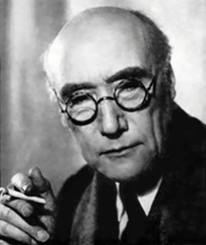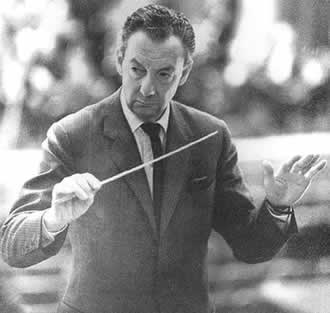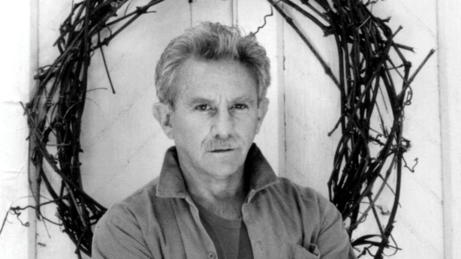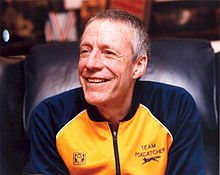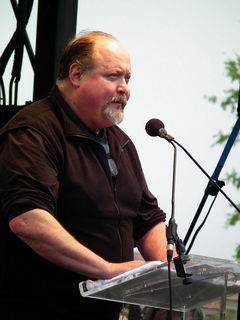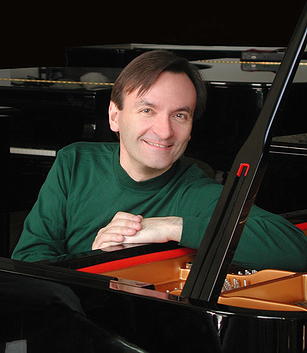|
presents THIS DAY IN GAY HISTORY based on: The White Crane Institute's 'Gay Wisdom', Gay Birthdays, Gay For Today, Famous GLBT, glbt-Gay Encylopedia, Today in Gay History, Wikipedia, and more …
Collected by Ted November 22 [{(o)}]|[{(o)}]|[{(o)}]|[{(o)}]| [{(o)}]|[{(o)}]
1869 – André Gide (d.1951) was a French author and winner of the Nobel Prize in literature in 1947. Gide's career ranged from its beginnings in the symbolist movement, to the advent of anticolonialism between the two World Wars. Known for his fiction as well as his autobiographical works, Gide exposes to public view the conflict and eventual reconciliation between the two sides of his personality, split apart by a straight-laced education and a narrow social moralism. Gide was born in Paris on 22 November 1869, into a middle-class Protestant family. His father was a Paris University professor of law and died in 1880. Gide was brought up in isolated conditions in Normandy and became a prolific writer at an early age, publishing his first novel, The Notebooks of Andre Walter (French: Les Cahiers d'André Walter), in 1891. In 1893 and 1894, Gide traveled in Northern Africa, and it was there that he came to accept his attraction to boys. He befriended Oscar Wilde in Paris, and in 1895 Gide and Wilde met in Algiers. There, Wilde had the impression that he had introduced Gide to homosexuality, but, in fact, Gide had already discovered this on his own. In 1895, after his mother's death, he married his cousin Madeleine Rondeaux, but the marriage remained unconsummated. In 1908, Gide helped found the literary magazine Nouvelle Revue Française (The New French Review). In 1916, Marc Allégret, only 15 years old, became his lover. Marc was the son of Elie Allégret, best man at Gide's wedding. Of Allégret's five children, André Gide adopted Marc. The two fled to London, in retribution for which his wife burned all his correspondence, "the best part of myself," as he was later to comment. In the 1920s, Gide became an inspiration for writers such as Albert Camus and Jean-Paul Sartre. In 1923, he published a book on Fyodor Dostoyevsky; however, when he defended pederasty in the public edition of Corydon (1924) he received widespread condemnation. He later considered this his most important work. In 1923, he sired a daughter, Catherine, by Elisabeth van Rysselberghe, a woman who was much younger than him. He had known Elisabeth for a long time, as she was the daughter of his closest female friend, Maria Monnom, the wife of his friend, the Belgian neo-impressionist painter Théo van Rysselberghe. This would cause the only crisis in the long-standing relationship between Allégret and Gide and damaged the relation with Van Rysselberghe. This was possibly his only sexual liaison with a woman and it was brief in the extreme, but his daughter Catherine became his only descendant by blood. He liked to call Elisabeth "La Dame Blanche" ("The White Lady"). Elisabeth eventually left her husband to move to Paris and manage the practical aspects of Gide's life (they had adjoining apartments built for each of them on the rue Vavin). She worshipped him, but evidently they no longer had a sexual relationship. Gide's legal wife, Madeleine, died in 1938. Later he used the background of his unconsummated marriage in his novel Et Nunc Manet in Te. From July 1926 to May 1927, he travelled through the French Equatorial Africa colony with his lover Marc Allégret. In his published journal, he criticized the behavior of French business interests in the Congo and inspired reform. In particular, he strongly criticized the Large Concessions regime, according to which part of the colony was conceded to French companies which could exploit all of the area's natural resources, in particular rubber. He related how natives were forced to leave their village during several weeks to collect rubber in the forest, and went as far as comparing their exploitation to slavery. The book had important influence on anti-colonialism movements in France and helped re-evaluate the impact of colonialism. Gide left France for Africa in 1942 and lived in Tunis until the end of World War II. In 1947, he received the Nobel Prize in Literature. He devoted much of his last years to publishing his Journal. Gide died in Paris on 19 February 1951. The Roman Catholic Church placed his works on the Index of Forbidden Books in 1952.
1913 – Benjamin Britten, Baron Britten, (d.1976) was an English composer, conductor, and pianist. He showed talent from an early age, and first came to public attention with the a cappella choral work A Boy Was Born in 1934. With the premiere of his opera Peter Grimes in 1945, he leapt to international fame. For the next fifteen years he devoted much of his compositional attention to writing operas, establishing him as one of the leading 20th century figures in this genre. Britten's interests as a composer were wide-ranging; he produced important music in such varied genres as orchestral, choral, solo vocal (much of it written for the tenor Peter Pears), chamber and instrumental, as well as film music. He also took a great interest in writing music for children and amateur performers, and was an outstanding pianist and conductor. Britten was born in Lowestoft, Suffolk. His father was a dentist, and his mother a talented amateur musician who gave Britten his first lessons in piano and notation. He showed musical gifts very early in life, making his first attempts at composition aged five, and thereafter composing prolifically as a child. He started piano lessons with a teacher from his pre-prep school when aged 7, and viola lessons when 10 years old. Britten heard Frank Bridge's orchestral poem The Sea at a festival and was, as he put it, 'knocked sideways'. A family friend of Frank Bridge and was able to arrange an introduction. After examining Britten's work, Bridge took him on as a composition pupil. In April 1935, he was approached by the film director Alberto Cavalcanti to write the film score for the documentary The King's Stamp, produced by the GPO Film Unit. He subsequently met W. H. Auden, who was also working for the GPO Film Unit; together they worked on the films Coal Face and Night Mail. They also collaborated on the song cycle Our Hunting Fathers Op. 8, radical both in politics and musical treatment, and other works. Of more lasting importance to Britten was his meeting in 1937 with the tenor Peter Pears, who was to become his musical collaborator and inspiration as well as his life partner. In the same year he composed a Pacifist March (words, Ronald Duncan) for the Peace Pledge Union, of which, as a pacifist, he had become an active member, but the work was not a success and soon withdrawn. One of Britten's most noteworthy works from the 1930s was Variations on a Theme of Frank Bridge for string orchestra, Op. 10, written in 1937. 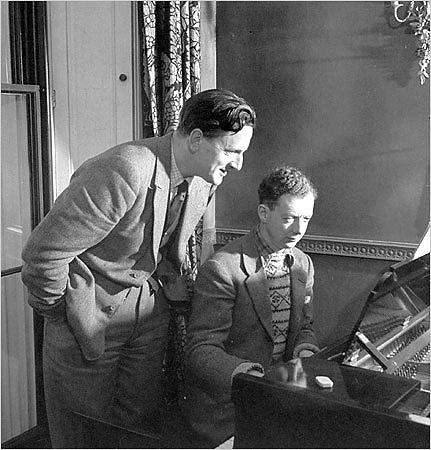 Britten (seated) and Peter Pears In early 1939, Britten and Pears followed Auden to America. There, in 1940, Britten composed Seven Sonnets of Michelangelo, the first of many song cycles for Pears. Already friends with the composer Aaron Copland, Britten encountered his latest works Billy the Kid and An Outdoor Overture, both of which manifestly influenced his own music. While in America Britten wrote his first music drama, Paul Bunyan, an operetta (to a libretto by Auden). The period in America was also remarkable for a number of orchestral works, including the Violin Concerto Op. 15, and Sinfonia da Requiem Op. 20 (for full orchestra). Britten and Pears returned to England in 1942, and both applied for recognition as conscientious objectors. He completed the choral works Hymn to St. Cecilia (his last large-scale collaboration with Auden) and A Ceremony of Carols during the long sea voyage. He had already begun work on his opera Peter Grimes based on the writings of Suffolk poet George Crabbe, and its première at Sadler's Wells in 1945 was his greatest success thus far. Peter Grimes was the first in a series of English operas, of which Billy Budd (1951) and The Turn of the Screw (1954) were particularly admired. His Shakespeare opera, A Midsummer Night's Dream, followed in 1960. These operas share common themes. Even in his comic opera Albert Herring of 1947, all feature an 'outsider' character excluded or misunderstood by society. Often this is the eponymous protagonist, as in Peter Grimes and Owen Wingrave. In his last decade, Britten's health deteriorated,and his later works became more and more sparse in texture. They include the operas Owen Wingrave (1970) and Death in Venice (1971-1973) Having previously declined a knighthood, Britten accepted a life peerage on 2 July 1976 as Baron Britten, of Aldeburgh in the County of Suffolk. A few months later he died of heart failure at his house in Aldeburgh. He is buried in the churchyard of St. Peter and St. Paul's Church there. The grave of his partner, Sir Peter Pears, lies next to his. A memorial stone to him was unveiled in the north choir aisle of Westminster Abbey in 1978.
1930 – Joe Pintauro was an American playwright, novelist, poet, and photographer. His novels include State of Grace and Cold Hands. He was the recipient of the John Steinbeck Literary Humanitarian Award and Guild Hall's Lifetime Achievement Award. Pintauro grew up in Queens, where he attended John Adams High School, and in East Northport, on Long Island. At Manhattan College in the Bronx, where he earned a bachelor's degree, he studied business and marketing but also nurtured an interest in writing, contributing articles to the college's newspaper and poetry to its quarterly journal. The college, a Roman Catholic institution, was his first exposure to Catholic schooling, and he arrived there at a particularly emotional point. His mother was dying from cancer and by the time he graduated in 1953 he had decided to become a priest. He was ordained in Brooklyn in 1958. He was assigned to parishes in the Flatbush and then Williamsburg sections of Brooklyn at a time when unemployment, gangs and drugs, not gentrification, were the issues of the day. On his days off from his priestly duties he pursued his writing interests, joining in the Circle in the Square Theater drama workshop in Greenwich Village and workshops on poetry and cinema at Columbia University. In the mid-1960s Mr. Pintauro asked his bishop for permission to seek a job in the secular world. The request was granted in 1966. He landed a job at the advertising agency Ted Bates. He worked on campaigns for Trans World Airlines and Kool cigarettes. He also became a published poet; his 1968 volume, "To Believe in God," illustrated by Sister Mary Corita Kent, sold well and brought him a burst of renown that included television appearances. His novel "Cold Hands" was published in 1979. In 1982 Circle Rep staged his play "Snow Orchid", about a family in turmoil, with a cast that included Peter Boyle and Olympia Dukakis. The company opened its fall season in 1989 with his drama "Beside Herself" with William Hurt, Lois Smith and Calista Flockhart in the cast. "The Dead Boy" (1990) was about a church sex scandal and has had readings or productions all over the United States and abroad. Mr. Pintauro addressed the grim reality of AIDS in "Raft of the Medusa" (1991), whose title invoked the Théodore Géricault painting of the aftermath of a shipwreck, a raft full of the dead and the living. Pintauro died on May 29, 2018, at his home in Sag Harbor, N.Y. He was 87. His husband, Greg Therriault, said the cause was prostate cancer.
1938 – John Eleuthère du Pont (d.2010) was an American philanthropist and heir to the Du Pont family fortune who in 1996 murdered Olympic gold medal winning wrestler Dave Schultz. He was a published ornithologist, philatelist, philanthropist, conchologist, sports enthusiast, and self-styled wrestling coach. In 1972 du Pont founded and directed the Delaware Museum of Natural History and contributed to Villanova University and other institutions. After his mother's death, du Pont developed the 440-acre (1.8 km2) Liseter Hall Farm in Newtown Square as a high-quality wrestling facility for amateur wrestlers. He called the private group "Team Foxcatcher", after his father's noted racing stable. Du Pont established an Olympic swimming and wrestling training center and sponsored competitive events at the estate. He also allowed some people, such as Olympic champion wrestlers Mark Schultz and later his older brother David Schultz and his wife, to live in houses on the grounds for years. Schultz also coached the Foxcatcher team. In August 1988, a problem-plagued wrestling program he funded at Villanova was shut down after just two years. In December 1988, a lawsuit (which was settled out of court) claimed du Pont had made improper sexual advances to Villanova assistant coach Andre Metzger. Du Pont became a sponsor in wrestling, swimming, track, and the modern pentathlon. He was also involved in promoting a subset of the modern pentathlon (run, swim, shoot) as a separate event. He took up athletics and became a competitive wrestler in his 50s. His only prior wrestling experience was as a freshman in high school. He began competing again at the age of 55 in the 1992 Veteran's World Championships in Cali, Colombia; following that in 1993 in Toronto, Ontario; in 1994 in Rome, Italy; and in 1995 in Sofia, Bulgaria. In the 1990s, friends and acquaintances were concerned about his erratic and paranoid behavior, but his wealth shielded him. On January 26, 1996, du Pont shot and killed Dave Schultz in the driveway of Schultz's home on du Pont's 800-acre (3.2 km2) estate. Schultz's wife Nancy and du Pont's head of security Patrick Goodale were present and witnessed the crime. The security chief was sitting in the passenger seat of du Pont's car when du Pont fired three bullets into Schultz. Police did not establish a motive. Schultz had worked with du Pont to coach the wrestling team for years. Schultz had also tried to help du Pont with his drinking problem. On February 25, 1997, he was convicted of murder in the third degree for the January 26, 1996, shooting death of Dave Schultz. He was ruled to have been mentally ill but not insane and was sentenced to prison for 13 to 30 years. He died in prison at age 72 on December 9, 2010. He was the only member of the Forbes 400 richest Americans ever to be convicted of murder.Du Pont is the subject of the 2014 film Foxcatcher, in which he is portrayed by Steve Carell.
1941 – On this date the American dancer and writer Nicholas Dante, best known for the hit musical A Chorus Line, was born (d. 1991). Born Conrado Morales in New York City to Puerto Rican parents, Dante's early career was spent dancing in the chorus of Broadway musicals such as Applause and Ambassador. In 1974, he was approached by friend Michael Bennett who invited him to the sessions which led to the basis of material for the book of a musical about Broadway "gypsies," the dancers who serve as a backdrop for the leading performers. Eventually, collaborating with James Kirkwood, Jr., the result was A Chorus Line, a groundbreaking musical which earned him the 1976 Tony Award and Drama Desk Award for Best Book of a Musical and the Pulitzer Prize for Drama. In particular, the story of Paul, the homosexual Puerto Rican dancer whose early career consisted of working in a drag show, was based primarily on Dante. The actor who originated the role on the famous monologue, Sammy Williams, won a Beast Featured Actor in a Musical award in 1976 for the role. Dante himself went on to play the role in later mountings of the show. He also authored a screenplay, Fake Lady, and a stage musical based on the life of entertainer Al Jolson entitled Jolson Tonite, but never again achieved the success he did with A Chorus Line. Dante died on May 21, 1991 from AIDS-related complications in New York City.
1943 – Peter Adair (d.1996) was a filmmaker and artist, best known for his pioneering documentary, Word Is Out. Adair entered the film industry in the 1960s and first gained critical attention with his 1967 documentary Holy Ghost People, a film record of a Pentecostal snake handler worship service in the Appalachians. From 1975 to 1977, he collaborated with his lesbian sister Nancy Adair and other members of the Mariposa Film Group to produce and direct Word Is Out. The film, the first of its kind to present gays and lesbians in a positive light, was a critical hit nationwide. Word Is Out inspired Nancy to collaborate with Casey Adair, Peter and Nancy's mother, on a companion book, published in 1978. Peter Adair always chose the subject matter for his film based on his current passions, and Word Is Out was as much a vital part of his own coming out process as it was an attempt to show gays and lesbians in a very human and non-sensational manner. n 1983 Peter Adair produced Stopping History and in 1984 acted as consultant and did additional camerawork on The Times of Harvey Milk, directed by his former protégé Rob Epstein. That same year he worked with the Project Read adult literacy program of the San Francisco Public Library to produce a series of tutoring videos. As he began to see his friends in the art and film communities succumb to the plague of AIDS, Adair co-directed, with Rob Esptein, The AIDS Show: Artists Involved in Death and Survival, one of the first films to examine AIDS' impact on the arts community, in 1986. When he became aware of his own HIV status, he wrote and directed Absolutely Positive, an examination of how asymptomatic HIV positive people live with uncertainty On 27 June 1996, Peter Adair succumbed to complications of AIDS at the age of 52 in San Francisco.
1943 – Billie Jean King is a former professional tennis player from the United States. She won 12 Grand Slam singles titles, 16 Grand Slam women's doubles titles, and 11 Grand Slam mixed doubles titles. King has been an advocate against sexism in sports and society. She won "The Battle of the Sexes" in 1973, in which she defeated Bobby Riggs, a former Wimbledon men's singles champion, for $100,000, winner take all. Billie Jean Moffit was born in Long Beach, California, into a conservative Methodist family, the daughter of a fireman father and housewife mother. Billie Jean attended Long Beach Polytechnic High School. After graduating, she attended California State University, Los Angeles (CSULA) because her parents could not afford Stanford or the University of Southern California (USC). She married Lawrence (Larry) King in Long Beach, California on September 17, 1965. In 1971, she had an abortion, which Mr. King revealed to the public in a 1972 Ms. Magazine article, without consulting Mrs. King in advance. King said in her 1982 autobiography that she decided to have an abortion because she believed her marriage was not solid enough to bring a child into her family. Billie Jean and Lawrence divorced in 1987. By 1968, King realized that she was interested in women, and in 1971, the same year of the abortion and while still married to Lawrence King, she began an intimate relationship with her secretary, Marilyn Barnett. King was forced to acknowledge the relationship when it became public in a May 1981 "palimony" lawsuit filed by Barnett, making King the first prominent professional female athlete to come out as a lesbian. King said that she had wanted to retire from competitive tennis in 1981 but could not afford to because of the lawsuit. Speaking about the lawsuit in 2007, 26 years after it was filed, King said: It was very hard on me because I was outed and I think you have to do it in your own time. Fifty per cent of gay people know who they are by the age of 13. I was in the other 50%. I would never have married Larry if I'd known. I would never have done that to him. I was totally in love with Larry when I was 21. Concerning the personal cost of concealing her sexuality for so many years, King said: I wanted to tell the truth but my parents were homophobic and I was in the closet. As well as that, I had people tell me that if I talked about what I was going through, it would be the end of the women's tour. I couldn't get a closet deep enough. I've got a homophobic family, a tour that will die if I come out, the world is homophobic and, yeah, I was homophobic. If you speak with gays, bisexuals, lesbians and transgenders, you will find a lot of homophobia because of the way we all grew up. One of my big goals was always to be honest with my parents and I couldn't be for a long time. I tried to bring up the subject but felt I couldn't. My mother would say, "We're not talking about things like that", and I was pretty easily stopped because I was reluctant anyway. I ended up with an eating disorder that came from trying to numb myself from my feelings. I needed to surrender far sooner than I did. At the age of 51, I was finally able to talk about it properly with my parents and no longer did I have to measure my words with them. That was a turning point for me as it meant I didn't have regrets any more. On August 12, 2009, she was awarded the Presidential Medal of Freedom by President Barack Obama for her work advocating for the rights of women and the lesbian, gay, bisexual, and transgendered community. "This is a chance for me - and for the United States of America - to say thank you to some of the finest citizens of this country and of all countries", President Obama said. King currently resides in New York and Chicago with her partner, Ilana Kloss.
Other members of the Phelps family have also left, most recently Zach Phelps-Roper in February 2014. Phelps was born in Topeka, Kansas on November 22, 1958. From birth until age 18, Phelps lived with his parents Fred and Margie in his hometown. Although he attended a local public school, beyond that his life revolved around his father's Westboro Baptist Church (WBC), which adjoined their family home inside a walled compound. Attendance at scheduled sermons was strictly enforced, and after-school time was largely committed to raising money for the Church through selling candy. Later this was eclipsed by participation in his father's intensive exercise program, which would routinely involve Phelps and his siblings running 5 or 10 miles after school, accompanied by participation in a fad diet. Phelps describes his father as "deeply prejudiced", and also violent and abusive, and gives accounts of receiving extended beatings with a leather strap and later with a mattock handle. Phelps' brother Mark and sister Dortha have corroborated Phelps' claims of physical abuse by their father. After leaving WBC, Phelps undertook various jobs before reuniting with his older brother Mark, and in 1978 they established a printing company together in Prairie Village, near Kansas City. The company later relocated to Southern California. Phelps worked for 25 years in the print business. Three years after leaving, Phelps contacted his family, and for a brief period left Mark and the firm to stay with them. His father had offered to fund him through law school, a path which took 11 of his siblings into careers as lawyers, but which Nathan declined. Fred never accepted him back, eventually denouncing him. Phelps then left again, this time for good, permanently breaking contact with his father. During an interview while at QEDcon in April 2014, Nate Phelps explained how the lingering effects of his indoctrination as a youth were so entrenched. He understood how one could feel persecuted and sincerely surprised when other people react quite strongly against ideas of what "the truth" was as he saw it:
When I first heard that my family had started this “God hates fags” campaign...immediately people start using words like 'cult' and 'hate,' and that kind of stuff. And I remember, more privately than anything else, that, ‘No no no no, this isn’t a cult, this is my family! This is a church, this is a real church! It’s not a cult, and that no, that’s not hateful, it’s true! So I get it, because that’s how you understand the world to be. And even though I had been gone for some time, it was still one of those moments where I got to recognize that I’m actually still holding a lot of these ideas as true in my mind even though I'm starting to question the whole God thing. Phelps later moved to rural British Columbia, Canada, and currently lives in Calgary, Alberta. He is the Executive Director of the Centre for Inquiry Calgary, a secular organization that educates and advocates reason and science. He also serves on the board of directors of Recovering from Religion, which offers education and practical support for people leaving religious communities. Phelps is an active public speaker and appears at events designed to promote the ideas of atheism, skepticism, and secularism. He has spoken at numerous Gay Pride events and describes himself as a "LBGT activist".
1961 – Stephen Hough, CBE is a British-born classical pianist, composer and writer. He became an Australian citizen in 2005 and thus has dual nationality (his father was born in Australia in 1926). Hough was born in Heswall (then in Cheshire) on the Wirral Peninsula, and grew up in Hoylake, where he began piano lessons at the age of five. In 1978, he was a finalist in the BBC Young Musician of the Year Competition and won the piano section. In 1982, he won the Terence Judd Award in England. In 1983, he took first prize at the Naumburg International Piano Competition in New York City. Hough holds a Master's degree from the Juilliard School where his studies were assisted by the receipt of the first ever Royal Philharmonic Society Julius Isserlis Scholarship for study abroad. He has studied with Heather Slade-Lipkin, Gordon Green, and Derrick Wyndham. Stephen Hough is also an avid writer. In addition to scholarly and critically-acclaimed CD liner notes and articles for music publications, he has written for The Guardian, The Times, and was invited by the Telegraph Media Group in December 2008 to start a cultural blog. Hough has written extensively about about his homosexuality and its relationship with both his music-making and his religion for the print media and has been interviewed on two special guest-edited episodes of BBC Radio 4’s The Today Programme. With a singular artistic vision that transcends musical fashions and trends, Stephen Hough is widely regarded as one of the most important and distinctive pianists of his generation. He has appeared as a soloist with major orchestras around the world.
Geoffreys appeared in several horror and teen films in the 1980s, most notably Heaven Help Us (1985) as well as Fraternity Vacation and 976-EVIL in 1989. He also played a supporting part in the critically acclaimed drama At Close Range in 1986. He is best known for playing the creepy "Evil Ed" in the 1985 vampire horror classic Fright Night starring Roddy McDowall. Two of Geoffrey's lines from that film became catch phrases in the mid 1980s: "To what do I owe this dubious pleasure?" and "You're so cool, Brewster!" Some have suggested that Geoffrey's refusal to appear in the Fright Night sequel was a major career misstep. During the 1990s, Geoffreys appeared for several years in gay pornographic movies, using the aliases Sam Ritter and Stephan Bordeaux, moving from "bloodsucker to cocksucker" as one crtic put it. 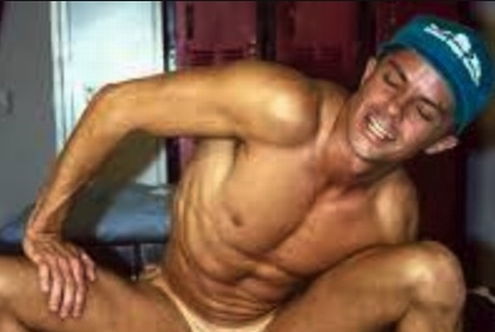 (Click for full Monty) Geoffreys returned to horror in a supporting role as "Mr. Putski" in the independent film Sick Girl, released in October 2007, after an almost 17 year absence from mainstream film. He went on to play a lead role in the horror film New Terminal Hotel. He later filmed the horror movie "Emerging Past", which also featured actor Brooke McCarter of The Lost Boys fame. Geoffreys' partner is John Wiliams.
1976 – Rickard Engfors, born in Haninge, Stockholm, is a Swedish model, stylist and former drag queen. His career began in 1996 as an artist in Swedish drag troupe After Dark and he was quickly appointed to "Christer Lindarws crown prince" and was also known as "Sweden's best looking girl". He has performed for royalty, won awards for his artistic efforts and shared the stage with many of Sweden's most beloved artists. He acts as female lead singer in the music video of the 2003 single Pass This On by The Knife. In 2004 the Swedish fashion house Panos Emporio chose Rickard as its house model for a swimwear range, which caused so much controversy that it was re-shot using a Greek model called Aleka. Engfors participated in Melodifestivalen 2005 with the song "Ready for Me".
1993 – Dolly Parton denied rumors that she's a lesbian, saying gal pal Judy Ogle was just her best friend.
2008 – On this date the parliament of Burundi, one of the ten poorest countries in the world, and one of the smallest (at only 11,000 square miles--about the size of Belgium) unanimously voted to outlaw homosexuality. The irony here is that on the very same date the parliament also adopted a new set of laws abolishing the death penalty for the first time in the troubled nation's history. The sweeping law was seen as an important reform. It incorporated parts of international law on genocide, war crimes and crimes against humanity. It includes important safeguards against torture as well as sexual violence against women and children. But the new laws also criminalize homosexuality.
[{(o)}]|[{(o)}]|[{(o)}]|[{(o)}]| [{(o)}]|[{(o)}] Today's Gay Wisdom: Quotes from André Gide:
[{(o)}]|[{(o)}]|[{(o)}]|[{(o)}]| [{(o)}]|[{(o)}] |
